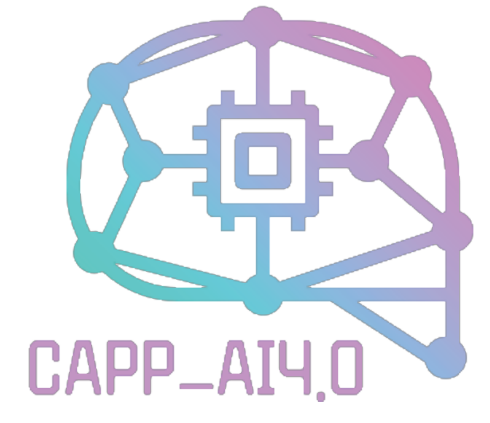Projects
PRIN - MITO
PRIN - MITO
2023 - 2025

L’obiettivo principale del progetto MITO è progettare e sviluppare tecnologie di produzione abilitanti per la produzione di massa di una piattaforma microfluidica Organ-on-a-Chip (OoC), un sistema integrato per la co-coltura in vitro e la perfusione di cellule di mammifero. L’obiettivo generale è quello di sviluppare sistemi efficienti, integrati, pronti all’uso ed espandibili per la coltura di cellule in condizioni che assomigliano all’ambiente microfisiologico, per ricapitolare le funzioni cellulari che non sono presenti nei sistemi di coltura cellulare convenzionali. Questi dispositivi microfluidici permetteranno di studiare la biologia delle malattie umane a livello paziente-specifico e a livello cellulare e molecolare. L’uso di questo sistema integrato per la ricerca di nuovi farmaci consentirà studi più rapidi, più economici e più accurati che mai, riducendo la sperimentazione sugli animali. I sistemi OoC convenzionali sono generalmente progettati e fabbricati a livello di laboratorio e assemblati in unità con manipolazioni complesse. Per rendere la tecnologia OoC prontamente disponibile per le indagini biologiche ad alto rendimento, è di fondamentale importanza sviluppare approcci produttivi robusti per la produzione su larga scala e a costi accessibili. Verrà progettato, prototipato, prodotto e validato un OoC integrato e compatto, e il relativo sistema di perfusione, che avrà caratteristiche avanzate che caratterizzeranno tali sistemi in futuro. Il progetto proposto avrà un’architettura multistrato, basata su strati polimerici e membrane elastomeriche. Microcanali, valvole e pompe saranno realizzati e assemblati sul chip principale, sfruttando le diverse proprietà degli strati e utilizzando microgriglie di supporto delle celle appositamente sviluppate. Le tecnologie di microproduzione all’avanguardia saranno adattate e migliorate per consentire la produzione di massa di un prodotto così complesso. In particolare, i processi di microfresatura e microEDM saranno ottimizzati per produrre micro caratteristiche dello stampo, come pareti lisce e sottili, perni e tasche sagomate; verranno realizzate sottili microgriglie polimeriche e integrate negli strati per promuovere lo stiramento periodico del substrato biologico cellulare e per riprodurre stimoli chimici e fisici sugli strati di co-coltura cellulare. Il processo di microstampaggio a iniezione sarà ottimizzato per produrre strati microstrutturati e microparti. Verranno identificate strategie robuste per la caratterizzazione metrologica di stampi, inserti e dispositivi microfluidici. Come importante risultato del positivo completamento del progetto, sarà reso disponibile un insieme unico di competenze su utensili di precisione, microproduzione e produzione di massa mediante replica. Questo progetto rafforzerà un nuovo flusso di ricerca concentrato sulle tecnologie di microproduzione per la produzione di massa di OoC e sulla bioingegneria. Creerà una rete di eccellenza nella ricerca scientifica nel tooling e nelle tecnologie di microproduzione nello scenario europeo, in linea con le priorità strategiche per la competitività dell’industria europea.
DIGIMAN 4.0
2019 - 2024

Industry 4.0 gravitates around one core rationale: recent progress in a variety of digital technologies has created unprecedented possibilities that result in huge improvements in operational effectiveness for manufacturing industries. A necessary condition for the European productive sector to be at the global forefront of technology, ensuring job creation and sustainable growth, is to have access to innovative, entrepreneurial, highly skilled research cross-disciplinary engineers in the fields of production engineering and digital manufacturing technologies. In reply to these needs, DIGIMAN4.0 ITN will provide world excellent research training to 15 ESRs (Early Stage Researchers) in the field of digital manufacturing technologies for Industry 4.0 production.
Read More
CAPP_AI4.0
2023

Machining process planning and preparation has a key role in machining, as an important part of industrial production. Process planning ensures that the machining process results in accurate, quality and productive manufacturing. So far, decisions made during planning were made mainly based on experience of skilled professionals. Now, new AI systems can contribute and support process planning to shorten the time needed and get as close to optimal results as possible.
This activity aims at increasing awareness, skills and application of these AI support systems that can assist trained employees with their machining process planning and preparation tasks. This activity will result in courses and workshops (as well as learning materials) that will train employees to use these systems and therefore increase the capability, productivity and effectiveness of the SMEs.
Read More
PROGETTI CONCLUSI
LIVE4.0
2022

The LIVE4.0 project aims at improving SMEs education in the machining field promoting a better use of Industry 4.0 instruments and creating effective learning experiences for their personnel at the job shop.
Education on how to achieve a fruitful digitalization of processes to improve their flexibility, resilience and efficiency will be the learning target. LIVE4.0 will exploit the European SMEs huge improvement margin by applying new I4.0 tools to make the transition towards a more advanced and efficient way of manufacturing.
LIVE4.0 will provide the knowledge and the experience of partner Universities, it will also bring the example of a partner SME that will be active in providing the user point of view in the content creation and provision, from which the project tagline: “from the SMEs for the SMEs”. New and flexible tools as learning nuggets and learning paths will be coupled with live and hands on experience at the job shop to tailor the learning experience to the SMEs needs.
Read More
LIVE4.0 - Survey of the SMEs’ needs and preferred topics of Industry 4.0 applied to Manufacturing
Executive Summary
This deliverable includes the analysis of the results provided by a survey launched in four different countries (Czech Republic, Germany, Italy and Spain) covering topics related to the size of the company, knowledge of Industry 4.0 solutions implementation level and use of Industry 4.0 tools, and the willingness of the companies to invest in courses related to Industry 4.0.
The survey was designed to be easy to answer and to take as little time as possible. The average time was lower than 15 minutes and consisted of 50 questions, combining yes/no questions, multiple choice questions and open questions. A total number of 67 answers were obtained combining the answers from the four countries, giving a small but heterogonous sample, which could provide interesting insights about how companies perceive Industry 4.0.
Although all the samples were analysed in depth, it is worth mentioning that around 75% of the companies answered yes to the question about receiving Industry 4.0 formation, being around 60% the ones willing to pay for these courses. This result itself just prove the general lack of knowledge with regard to Industry 4.0 and the real necessity showed by the companies about being taught in Industry 4.0.
The survey also shows that it is a very long way to go regarding the introduction of Industry 4.0 in the interviewed manufacturing companies as, for instance, CAD solutions are still prevalent in comparison to simulation or even CAM approaches. Also, another clear example is that only 25% of the companies used additive manufacturing. The experience with small batch productions, although it is quite common, is treated with a rigid system, which seems not to be the most appropriate approach. It should be also highlighted that data processing is mainly based on storage on data analysis and only 5% of the companies established automatic process monitoring. The implemented of Machine2Machine protocols is low, just close to 25%. These are some examples, among others, which justify the necessity of developing new learning approaches in order to introduce Industry4.0 in the companies.
